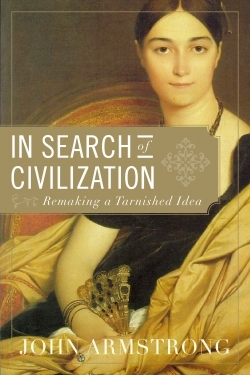In Search of Civilization
Civilization is the opposite of barbarism; however, it must be widespread and not exclusively for the educated or rich. It indicates not only material prosperity, with shared levels of economic and political development, but also a quality of thought and feeling to do with the private inner life of the individual. According to John Armstrong, civilization is a “sophisticated pursuit of pleasure” and “a high level of intellectual and artistic excellence,” an overall appreciation of what is good, truthful, and beautiful.
To get to his core idea, Armstrong divides his engaging book into four parts: Civilization as Belonging; Civilization as Material Progress; Civilization as the Art of Living; and Civilization as Spiritual Prosperity. His sound arguments offer valuable examples by great thinkers and writers, from Aristotle, Freud, and Abraham Maslow to Thomas Mann and Disraeli. The author refers to clashes of civilizations due to differences in “blood and belief, faith and family.” To resolve and prevent conflicts, he believes it is necessary to consider the differences between Israel and Palestine; America and Russia; the West, China, and Islam.
Because cultural traditions are so varied, it is hard for civilizations to understand one another. The feeling of belonging to a certain group is agreement of what is “proper and good,” and what is not. Factors that determine this recognition can be the food you eat and how you eat, how you dress, what it means to be a friend, how to raise your children, what is shameful, and what is honorable. “Prejudice is the inability to recognize the merits of another person,” says the author.
Armstrong questions the meaning and purpose of civilization on a broad scale and then homes in on the notion that we seek two kinds of satisfaction: an income that brings security and beauty. Matthew Arnold wrote that a machine allows mankind to work faster, but the time saved is spent recovering from the toil, not in deep conversation and an appreciation of beauty. Today, a company aiming for only profit cannot benefit the whole of civilization if they don’t care about the quality of the goods and services they offer, but only whether the consumer will purchase what they advertise. The real job of art and intelligence, says Armstrong, “is to shape and direct our longings, to show us what is noble and important.” The goal should be to supply human needs with wisdom, kindness, and taste.
John Armstrong is Philosopher-in-Residence at the Melbourne Business School and senior advisor to the vice-chancellor of Melbourne University. His considerate, well-written, and accessible book will be a reference for teachers and students in many areas of study.
Reviewed by
Mary Popham
Disclosure: This article is not an endorsement, but a review. The publisher of this book provided free copies of the book to have their book reviewed by a professional reviewer. No fee was paid by the publisher for this review. Foreword Reviews only recommends books that we love. Foreword Magazine, Inc. is disclosing this in accordance with the Federal Trade Commission’s 16 CFR, Part 255.

